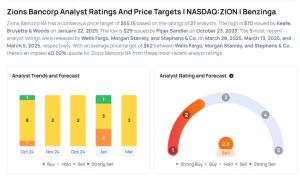
On federal bank holidays, banks all over the country close their doors for the day, and certain services are paused or delayed. These holiday schedules are standardized to help businesses and consumers manage their finances and plan ahead.
Most years, there are 11 federal banking holidays. But every four years, a new president takes office. In this case, Inauguration Day pushes the number of federal bank holidays to 12.
Here’s a look at the federal banking holidays for 2025:
-
Wednesday, January 1: New Year’s Day
-
Monday, January 20: Birthday of Martin Luther King, Jr.
-
Monday, January 20: Inauguration Day
-
Monday, February 17: Washington’s Birthday
-
Monday, May 26: Memorial Day
-
Thursday, June 19: Juneteenth National Independence Day
-
Friday, July 4: Independence Day
-
Monday, September 1: Labor Day
-
Monday, October 13: Columbus Day
-
Tuesday, November 11: Veterans Day
-
Thursday, November 27: Thanksgiving Day
-
Thursday, December 25: Christmas Day
Note: If a holiday falls on a weekend, there are adjustments to when banks recognize the holiday. For holidays that occur on a Saturday, the bank will be open on the preceding Friday. But if the holiday lands on a Sunday, the bank will be closed the following Monday.
Other holidays, from niche observations like Houseplant Appreciation Day to major holidays like Ramadan or Yom Kippur, aren’t federal banking holidays. Banks can adjust their hours on those holidays if they wish, but banks are usually open on those dates, and they’ll follow their normal operating schedules.
Banks usually operate normally on the following holidays:
-
Valentine’s Day
-
Ash Wednesday
-
Ramadan
-
St. Patrick’s Day
-
Palm Sunday
-
Good Friday
-
Easter Sunday
-
Passover
-
Cinco de Mayo
-
Mother’s Day
-
Father’s Day
-
Rosh Hashanah
-
Yom Kippur
-
Halloween
-
Black Friday
-
Boxing Day
-
Chanukah
-
Kwanzaa
-
New Year’s Eve
If you need to visit a bank in person, it’s a good idea to call the branch location ahead of time to ensure they’re open.
The 12 federal bank holidays are the most common reasons for bank closures. However, there are other instances when banks close.
Banks may close if a natural disaster, such as a hurricane or earthquake, affects certain regions. If a storm is expected, the Office of the Comptroller of the Currency may issue a declaration to federal banks and credit unions authorizing them to close.
Banks may also close if there is an emergency declaration due to calamities or emergency conditions. One of the most famous bank closures occurred in 1933. President Franklin D. Roosevelt proclaimed a bank holiday lasting from March 6, 1933, to March 13, 1933. The week-long closure helped restore consumer confidence in the U.S. bank system as people returned their hoarded deposits.
Even if you do the majority of your banking via mobile app or online portal, you’ll still be affected by federal bank holidays. The holidays can impact you in the following ways:
If you’re paid via direct deposit rather than receiving a paper check, your paycheck is transferred through the Automated Clearing House (ACH) network. The ACH network is a system connecting banks and credit unions that allows them to transfer money between them securely.
The standard practice for paydays that fall on a weekend or federal banking holiday is to pay them on the prior Friday to benefit the employee.
However, if you work for a small company or have an employer that manually processes payroll, there could be delays if they miss the earlier cut-off date for payroll submissions.
Electronic bill payments, such as credit card or utility bill payments, are processed on the next business day after the federal banking holiday.
For example, let’s say your credit card payment is typically due on the 19th of the month. This year, June 19 is Juneteenth, a federal banking holiday. If you submit your payment, it won’t be processed until the next business day; in this case, it will be processed on Friday, June 20.
If the payment’s due date lands on a federal bank holiday, then any mailed payments received by the bank by the end of the next business day are considered on-time payments.
If you deposit a check, a federal bank holiday can delay when the check clears and the money is available for your use.
For example, let’s say you deposit a check this year on Friday, Aug. 29. Normally, the check would clear and the funds would be available to you by Monday. But because Monday, Sept. 1 is a holiday, the money won’t be available for withdrawals or transfers until Tuesday, Sept. 2.
On federal bank holidays, banks and credit unions will close their brick-and-mortar branches. If you need to visit a teller or meet with a bank representative to discuss loan options, you’ll have to go to the branch on another day.
Read more: Which banks are open on Sunday?
Just because banks close their branches and pause operations on federal bank holidays doesn’t mean your accounts aren’t accessible. You can still complete the following activities on bank holidays:
If you have multiple accounts with the same bank, electronic transfers between accounts are often instant. You can transfer money from your checking account to your savings account online or through a mobile app, and the money will move over immediately.
Although bank branches are closed on federal bank holidays, you can still withdraw cash or make deposits at ATMs.
Rather than depositing a check in person at a bank, you can deposit a check to your account through your bank or credit union mobile app. You can complete the deposit, which will be processed the following business day.
Banks and credit unions will allow you to open new checking accounts, savings accounts, certificates of deposit (CDs), or other accounts online.
The government declares federal bank holidays to provide consistency and standardization across the industry. On federal bank holidays, bank branches typically close, and most transactions and processing systems are delayed until the next business day.
If a check is deposited on a holiday, it won’t be processed until the next business day, and the check may not clear for several days.
Bank holidays can affect automatic payments. Your payment will typically be processed on the next business day. But as long as the payment occurs by the end of the next business day, it’s considered a timely payment, and you won’t incur late fees or penalties.
